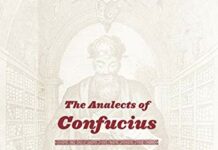
Ebook Info
- Published: 2006
- Number of pages: 229 pages
- Format: PDF
- File Size: 1.90 MB
- Authors: Burton Watson
Description
The Tales of the Heike is one of the most influential works in Japanese literature and culture, remaining even today a crucial source for fiction, drama, and popular media. Originally written in the mid-thirteenth century, it features a cast of vivid characters and chronicles the epic Genpei war, a civil conflict that marked the end of the power of the Heike and changed the course of Japanese history. The Tales of the Heike focuses on the lives of both the samurai warriors who fought for two powerful twelfth-century Japanese clans-the Heike (Taira) and the Genji (Minamoto)-and the women with whom they were intimately connected.The Tales of the Heike provides a dramatic window onto the emerging world of the medieval samurai and recounts in absorbing detail the chaos of the battlefield, the intrigue of the imperial court, and the gradual loss of a courtly tradition. The book is also highly religious and Buddhist in its orientation, taking up such issues as impermanence, karmic retribution, attachment, and renunciation, which dominated the Japanese imagination in the medieval period.In this new, abridged translation, Burton Watson offers a gripping rendering of the work’s most memorable episodes. Particular to this translation are the introduction by Haruo Shirane, the woodblock illustrations, a glossary of characters, and an extended bibliography.
User’s Reviews
Reviews from Amazon users which were colected at the time this book was published on the website:
⭐Great deal
⭐Good
⭐Fitting for historians and those that are fans of classical Japanese literature, outside of that, you might have some trouble getting into this and catching the cultural nuances.
⭐Am a big fan of Japanese History and Literature. Though I heard of this “Tale of Heiki”, I never read it until know. I read about much of it’s history and famous individual of this particular era. It’s an amazing story about one of the most historic moment in Japanese history. This is a really good translation work of the original.
⭐Very interesting narratives on historical Japanese culture. However there is much repetition of the same story lines and out comes.
⭐Book came in as the description says.
⭐A reasonable translation with useful explanations of arcana
⭐TOTH originated as a biwa hoshi work, meaning that it’s sung. It’s the first thing you learn about the work. So when you format it into prose you have to edit out a lot of the clunky parts so it reads smoother. This book is also abridged, so the book is shortened even further. Tales of the Heike is nearly 800 pages long in English, but this book is maybe 200-something. Even McCullough’s is 500 something pages. This is a good introduction to TOTH, and both Shirane and Watson are/were respectively great authors, but I wouldn’t read this book and think I read Heike. IF you want a good unabridged version of this work, buy Helen McCullough’s translation (it is formatted as prose, so it’s smoother to read). And if you want to read the story in a more faithful translation, buy the Royall Tyler or 1978 2 vol Tsuchida version.
⭐the book is in perfect condition; didn’t read, but knowing watson’s work on rinzai roku and zhuang zi might be considered as fine translation.
⭐代表的な段を集めた平家物語本です。あくまで分かるのはあらすじであって、外国人の方へのおおまかな説明、導入にはいいと思います。
⭐
Keywords
Free Download The Tales of the Heike (Translations from the Asian Classics) in PDF format
The Tales of the Heike (Translations from the Asian Classics) PDF Free Download
Download The Tales of the Heike (Translations from the Asian Classics) 2006 PDF Free
The Tales of the Heike (Translations from the Asian Classics) 2006 PDF Free Download
Download The Tales of the Heike (Translations from the Asian Classics) PDF
Free Download Ebook The Tales of the Heike (Translations from the Asian Classics)




